Infamous food hacks you need to ignore
Food hacks you'll never need

Cooking hacks promise to make life easier in the kitchen, but they're not always as foolproof as they claim. While some tips are genuinely helpful, others simply don’t deliver – or can even make cooking more complicated. So, should you really be adding oil to your pasta water or using mayo instead of butter on your grilled cheese sandwiches? Here we debunk the most common cooking hacks, tips and tricks that just don't work.
Click or scroll through our gallery to discover the food hacks you need to ignore, counting down to the most useless of all.
We’ve based our ranking on expert advice, how common each tip is, and on the opinions and first-hand knowledge of our team. The list is unavoidably subjective.
33. Ziploc piping bags
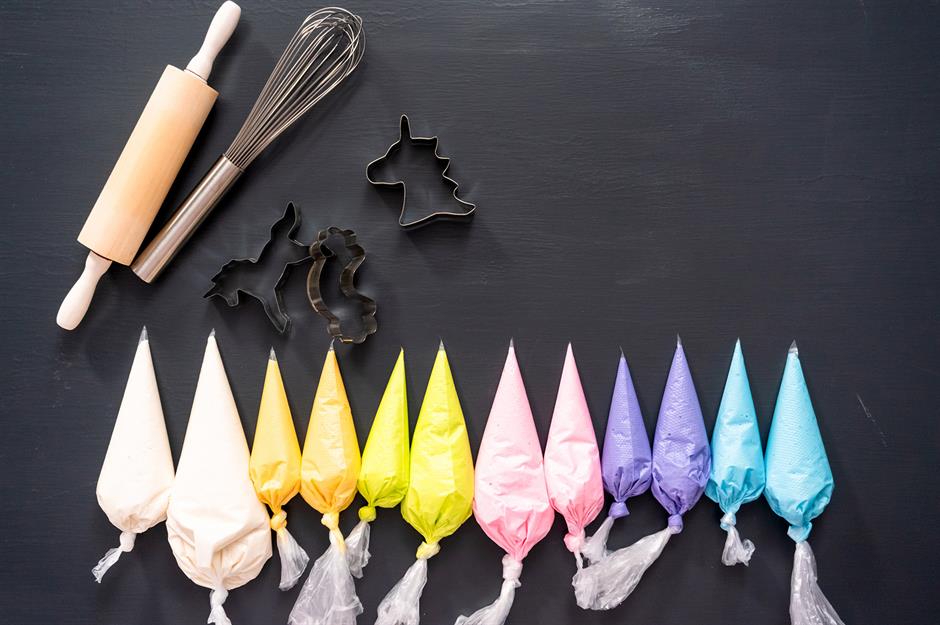
American chef and TV personality Alton Brown is famously against 'unitaskers' – kitchen utensils that only serve one purpose. He lumped piping bags into this category, claiming that you'll get the same results by popping icing into a Ziploc bag and snipping off one of the corners. The problem is that, sometimes, Ziploc bags explode if you put too much pressure on them, and decorating tips won't fit them, either. So, if you're after a particular finish, we'd suggest sticking with the piping bag.
32. Microwave bacon
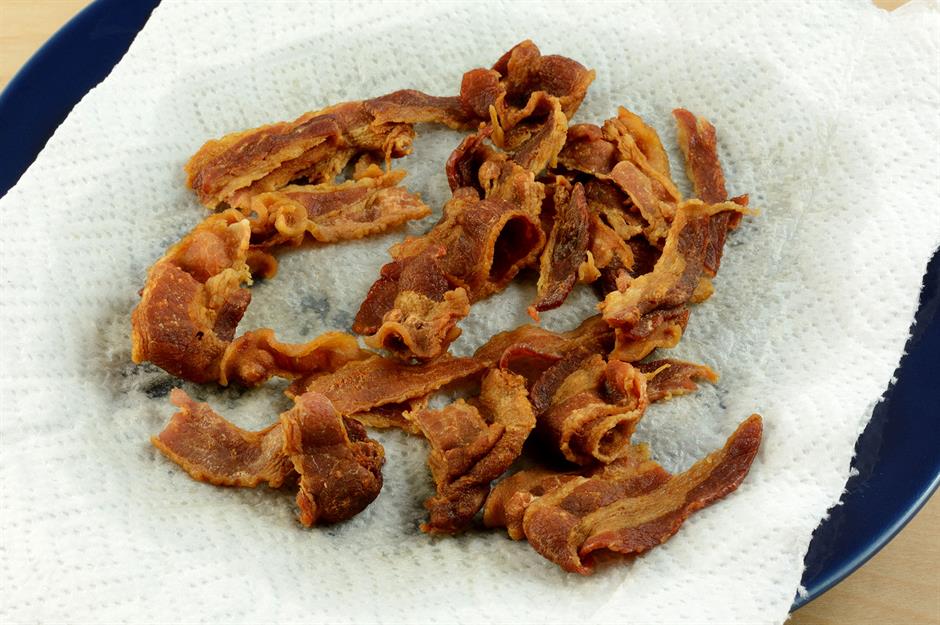
In 2008, British celebrity chef Marco Pierre White claimed that the best bacon is microwaved bacon. Now, it's perfectly acceptable to cook bacon in a microwave – but is it the best way to cook it? We're not so sure. If nothing else, it requires a fair amount of clean-up, and it leaves your microwave smelling like bacon for a long time. To hack your way to delicious bacon, we suggest skipping the microwaving and going with the air fryer instead.
31. Poach eggs in the microwave
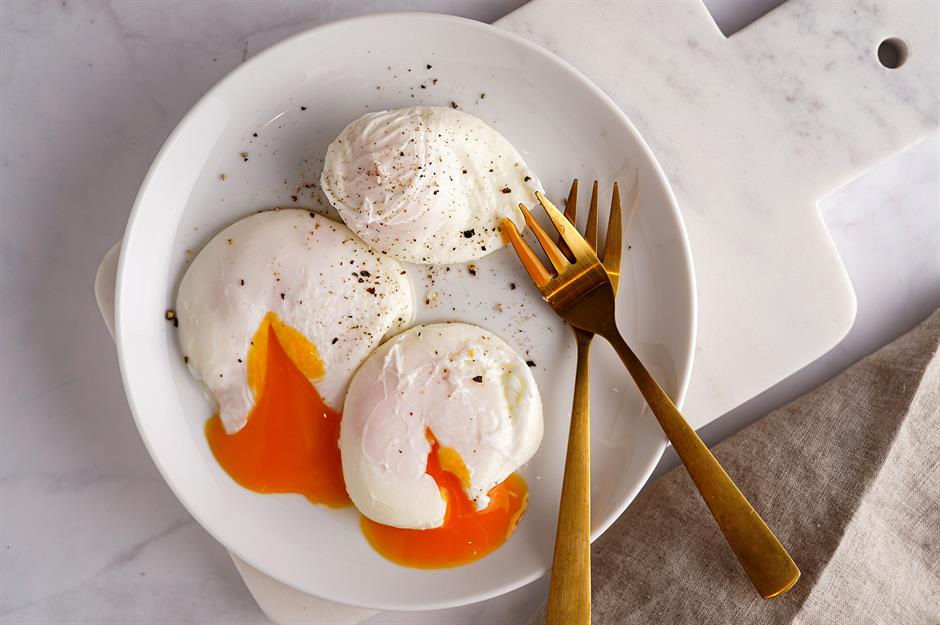
One search on the internet will reveal more hacks for perfect poached eggs than you can handle. One particularly popular trick involves poaching an egg in the microwave by cracking it into a small bowl, covering it with water and zapping it for 40 seconds or so. But, while the resulting egg looks good on TikTok, some users reported messy microwaves and hard eggs after giving the method a go. No matter which hack you try, it's hard to beat poaching eggs in a pot of simmering water.
30. Skip baking mac 'n' cheese
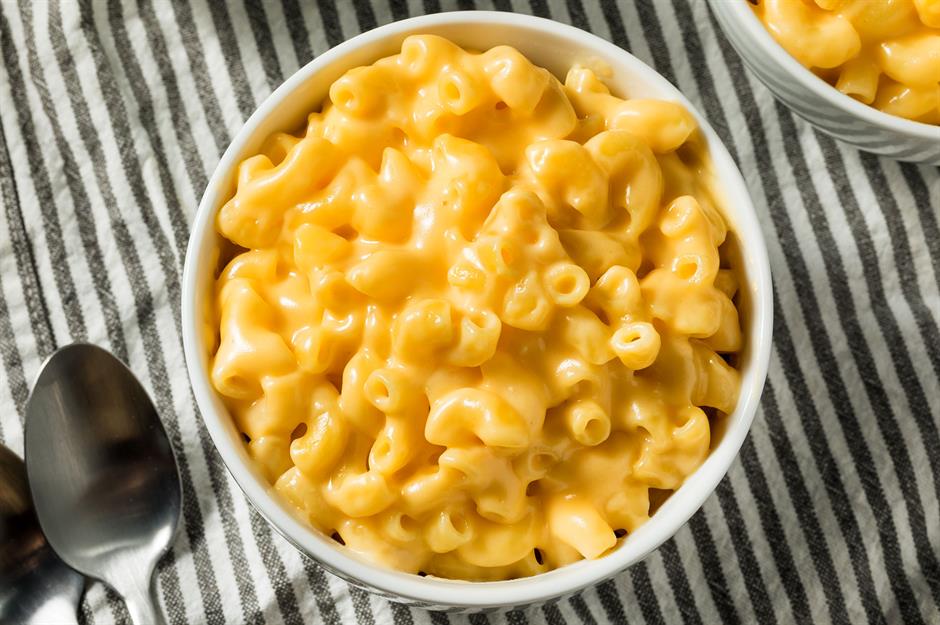
Sure, you can save time and energy by finishing your mac 'n' cheese on the stovetop, resulting in a perfectly acceptable pile of gooey pasta. But if you skip the oven while making mac 'n' cheese, you're only doing yourself a disservice. The baking process adds an irresistible crunch and deepens the flavour with that gorgeous, caramelised cheese topping. It takes the comforting dish to the next level and really doesn't take very long.
29. Use plastic chopping boards
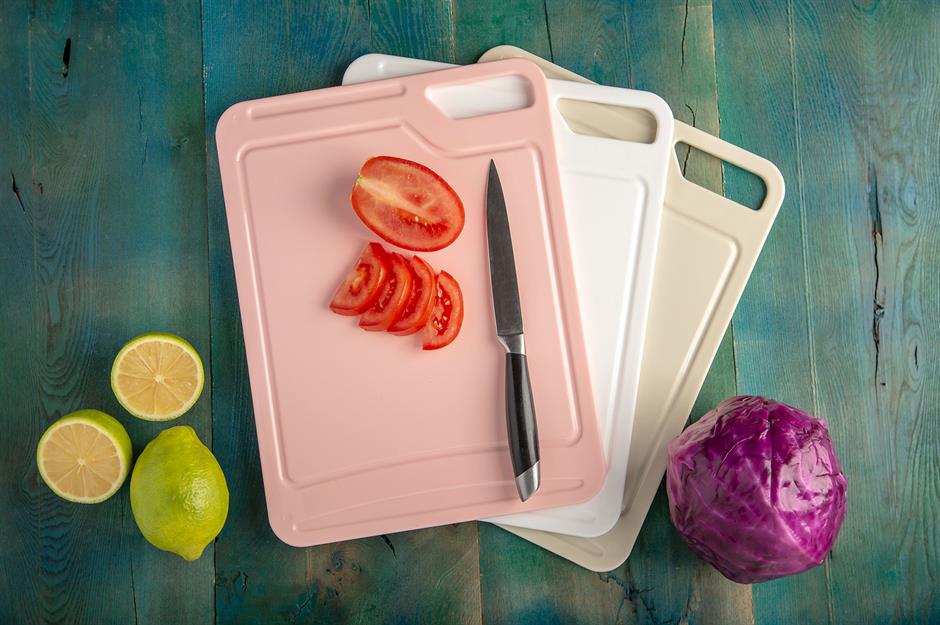
For the longest time, we were all advised to use plastic chopping boards because they were safer and easier to clean in, say, the dishwasher. But a 2024 study made everybody change their minds about this common kitchen item, as it turns out that plastic chopping boards leak microplastics into your food. Perhaps it's best to ditch the plastic (responsibly) and dig out the wooden chopping board instead.
28. Throw spaghetti against the wall
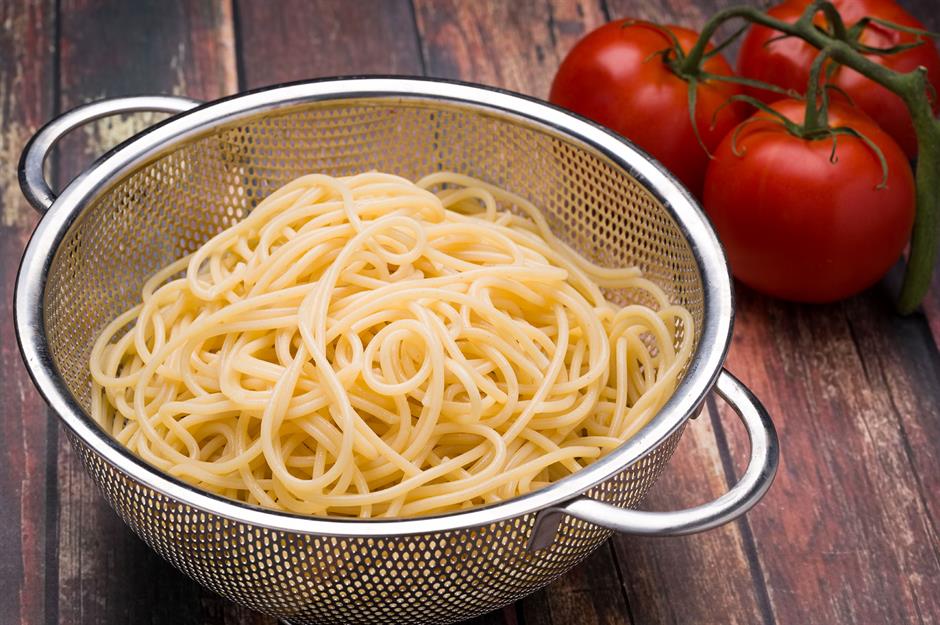
There's a popular belief that tossing spaghetti against a wall can tell you if it's perfectly cooked – if it sticks, it's ready. The problem is that pasta is naturally sticky, so it will likely cling to the wall whether it's done or not. Rather than risking your kitchen walls, a simpler and more reliable method is to take a piece out of the pot and taste it. If the texture feels right to you, then it's good to go.
27. Use an empty bottle to separate egg yolks
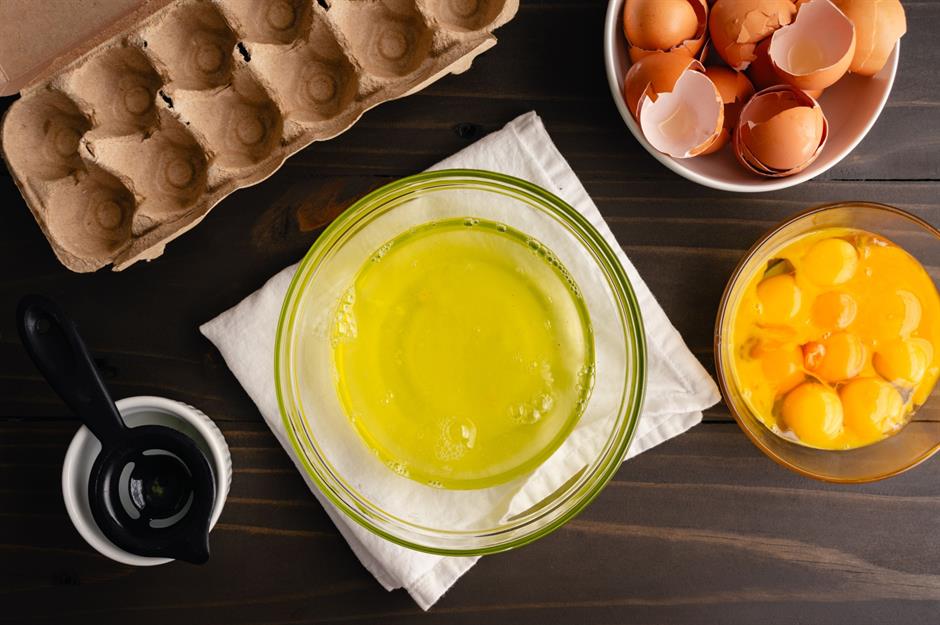
We’re all for recycling and repurposing, but we're not sure this is the right way of going about it. According to a glut of YouTube videos, the best way to separate egg yolks from egg whites is to use the suction power of an empty plastic bottle. In practice, however, it's quite fiddly and often results in broken yolks. It's much easier to use your hands or the eggshells to separate egg whites from yolks.
26. Put all your ingredients in bowls
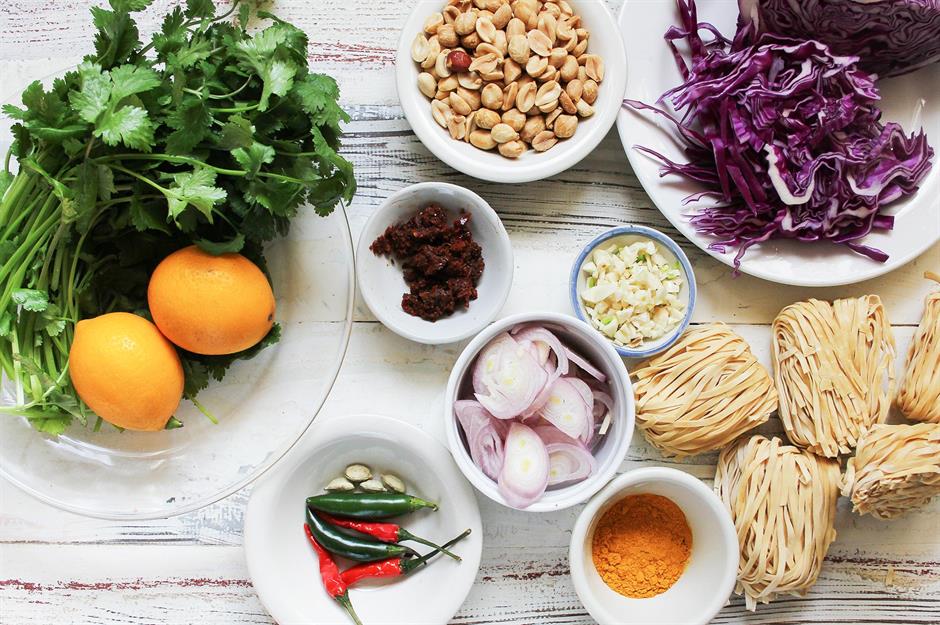
Chefs often talk about mise en place ('everything in its place'), and it's useful if you're working in a commercial kitchen. But home cooks who've been encouraged to prep ahead and put all their ingredients in little bowls before they even start cooking are probably not going to see much benefit. If you prep as you go, it'll decrease the amount of time you spend cooking and mean fewer dirty dishes.
25. Brown butter tastes better in everything
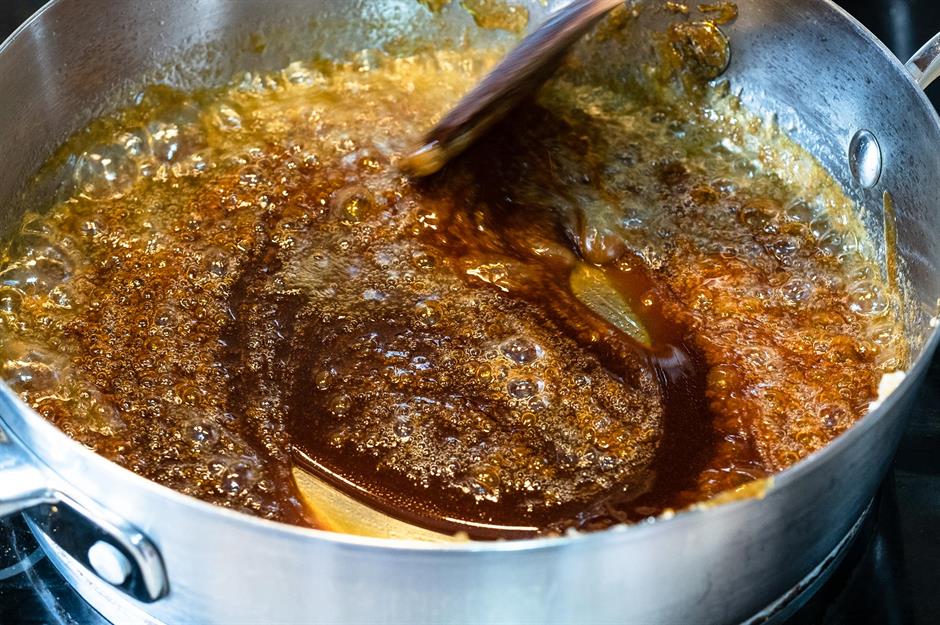
Brown butter – butter that's heated thoroughly until it turns brown – has a nutty flavour that cooks go crazy for. But while there's a time and a place for brown butter, putting brown butter in everything is just, well, unnecessary. We'd argue that brown butter's fine for adding a touch of sweetness to savoury dishes, but that cookies and cakes are perfect just as they are. That's to say nothing of how easy it is to go from brown butter to burnt butter.
24. Make grilled cheese sandwiches in a toaster
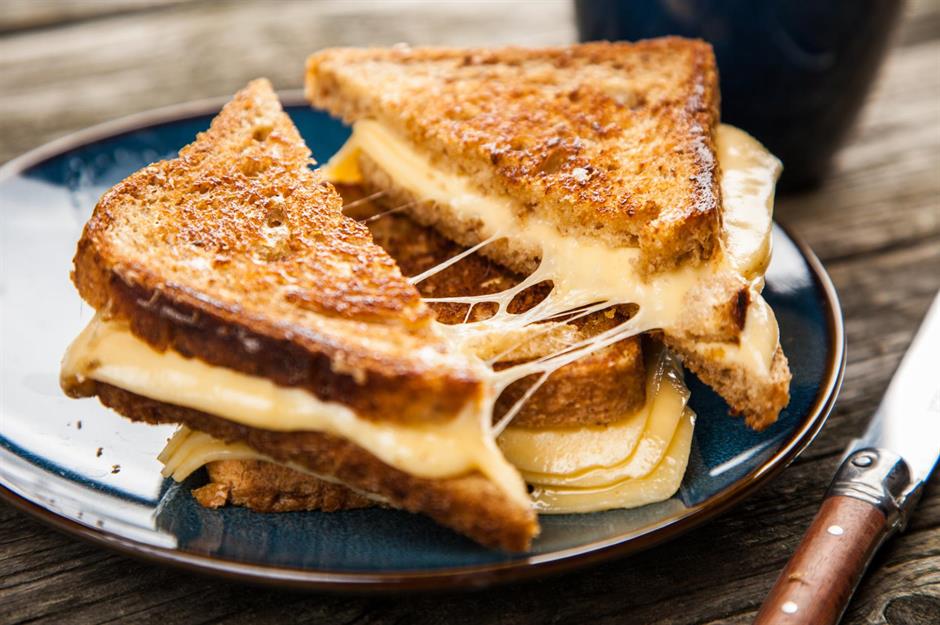
In 2023, roughly 25 firefighters from the London Fire Brigade spent 40 minutes tackling a fire that broke out in student accommodation after someone tried to make a grilled cheese in the toaster. The moral of the story? "Only use electrical products for their designated use," a spokesperson warned after the dramatic incident. Luckily, no one was injured.
23. Scoop out seeds to make chilli peppers milder
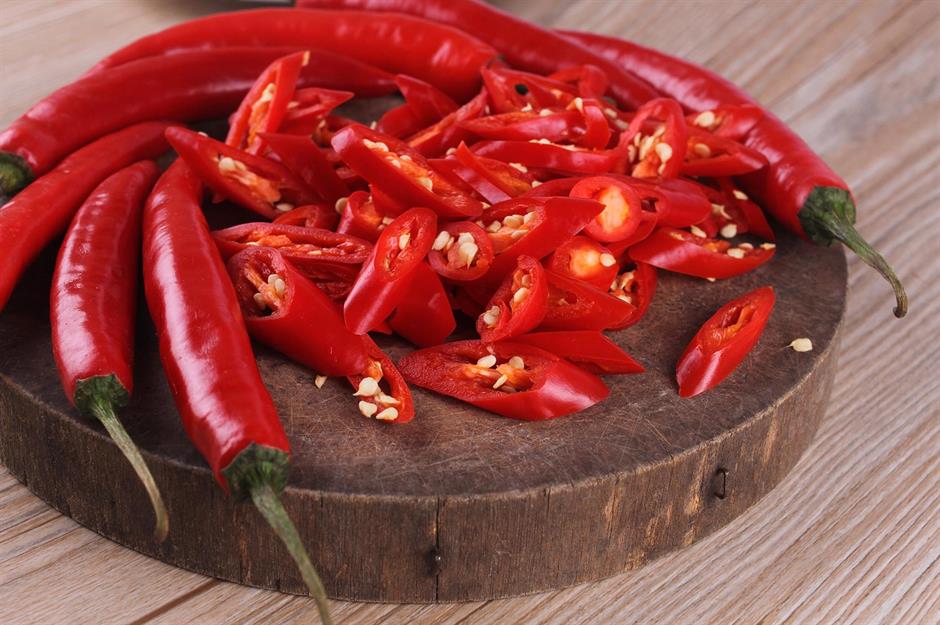
It's actually the white membrane of chilli peppers that makes them hot. The seeds only seem like the hottest part of the chilli due to their proximity to the membrane, but the seeds have little to no capsaicin (the component that gives peppers their heat). It's when the membrane is cut – and the capsaicin escapes with the juice and comes into contact with the seeds – that they'll feel hot.
22. Add salt to make water boil faster
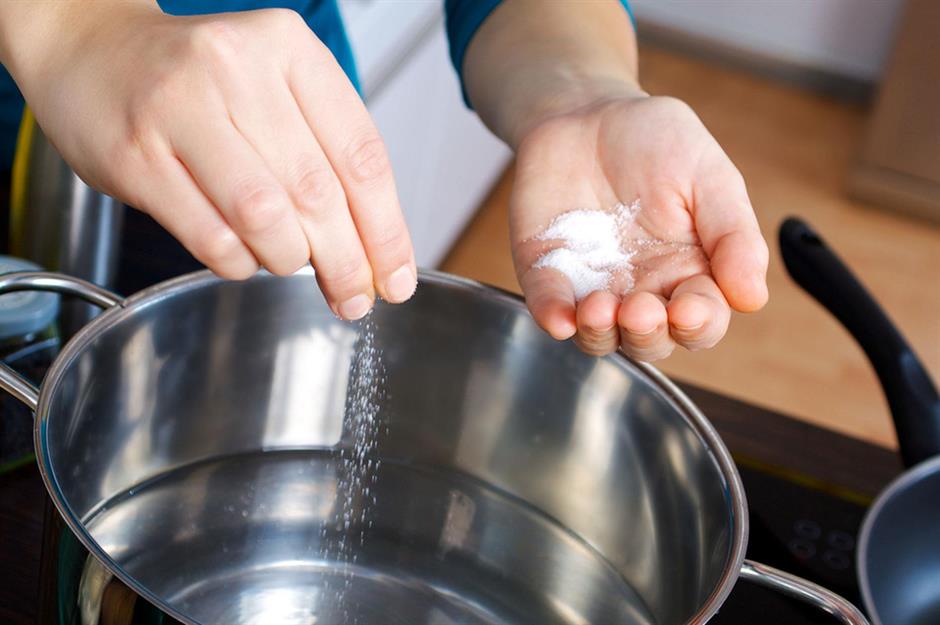
It's been suggested that adding salt to a pot of water on the hob will make it boil faster. Unfortunately, though, it doesn’t quite work like that. For the small amount of salt you're usually adding to water for cooking, it's not going to make any difference – and might even make it take longer to boil. According to Lesley-Ann Giddings, an associate professor of chemistry at Smith College in Massachusetts, you'd need a volume of water that is 20% salt to make it boil faster – and that's a lot of salt!
21. Store bread in the fridge to keep it fresh
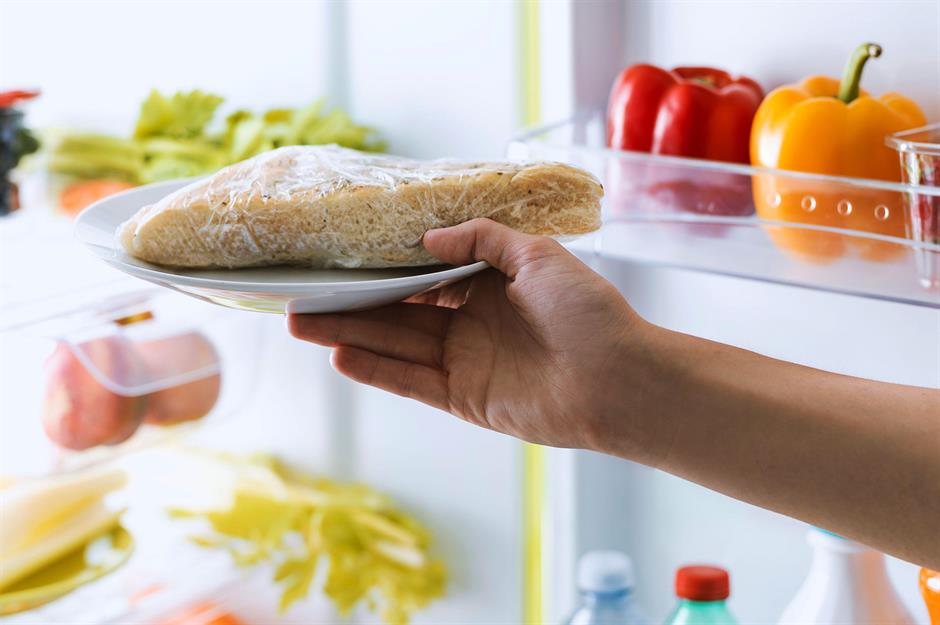
The US Department of Agriculture recommends you keep bread in the fridge to keep it fresh for up to 14 days. However, this is only because refrigeration slows the growth of mould – it makes no mention of the taste or texture of the bread. Starch will recrystallise in the fridge, causing the bread to dry out and become stale. You're better off storing it at room temperature and eating it within four days. Don't think you'll get through it in that time? Just put it in the freezer.
20. Potatoes are easier to peel when plunged in cold water
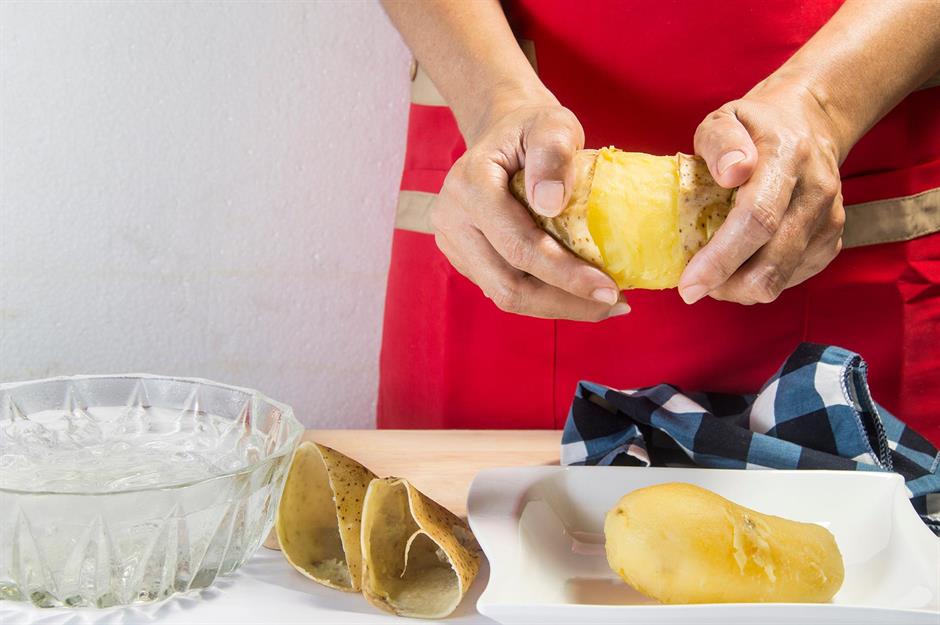
This hack shows how you can peel a potato without using a peeler. You score the skin all the way around, blanch it in boiling water, shock it in ice-cold water, then remove the skin with your fingers. It works fine, but it's hardly a hack to recommend. After all, it takes a lot longer and requires much more equipment than simply using a peeler. And besides, potatoes taste just as good, if not better, with the skin on, so why go through all the effort?
19. Add oil to butter to raise the smoke point
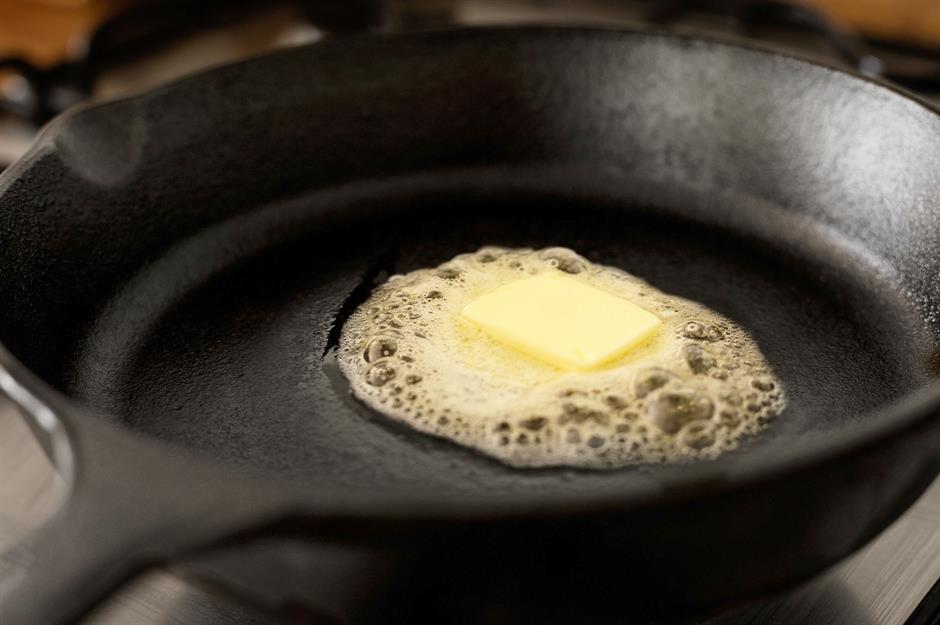
The generally accepted wisdom is that you can add a neutral-tasting oil to butter in a frying pan to raise the smoke point and stop it from burning. But when food website Serious Eats put this to the test, it found that butter and oil didn't mix, and that no combination of the two raised the smoke point. Unfortunately, the only way to stop butter from burning is to simply keep an eye on it.
18. Blitz granulated sugar to make icing sugar
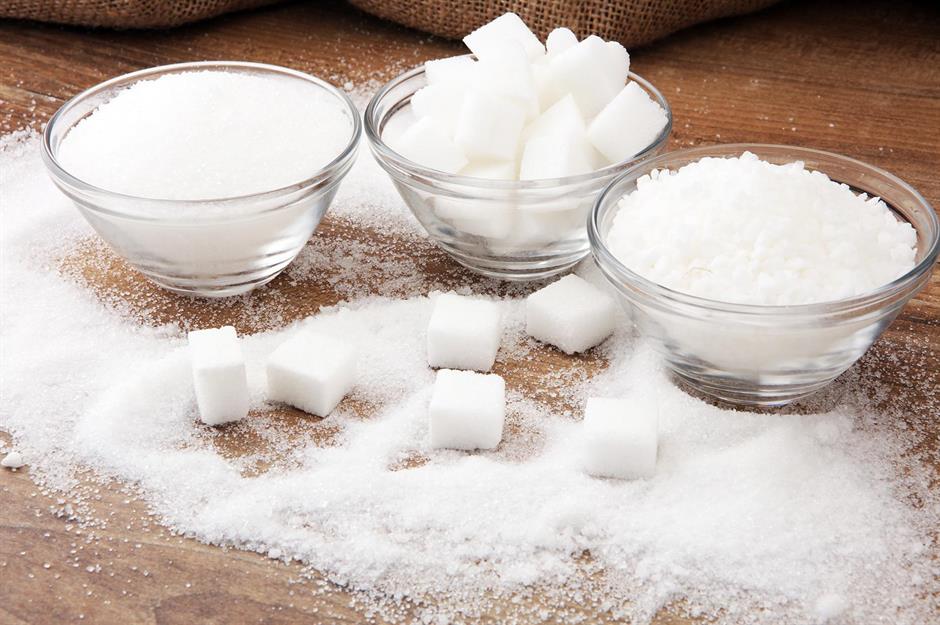
Unless you’ve got an industrial-grade mill, it’s highly unlikely you’ll be able to make fine icing sugar out of granulated sugar. Some food writers suggest using a spice grinder or a pestle and mortar, but it will take a long time and still won't be as good as shop-bought icing sugar. Given the time and effort involved, it's probably better to pop to the shops.
17. Baking soda or vinegar makes peeling eggs easier
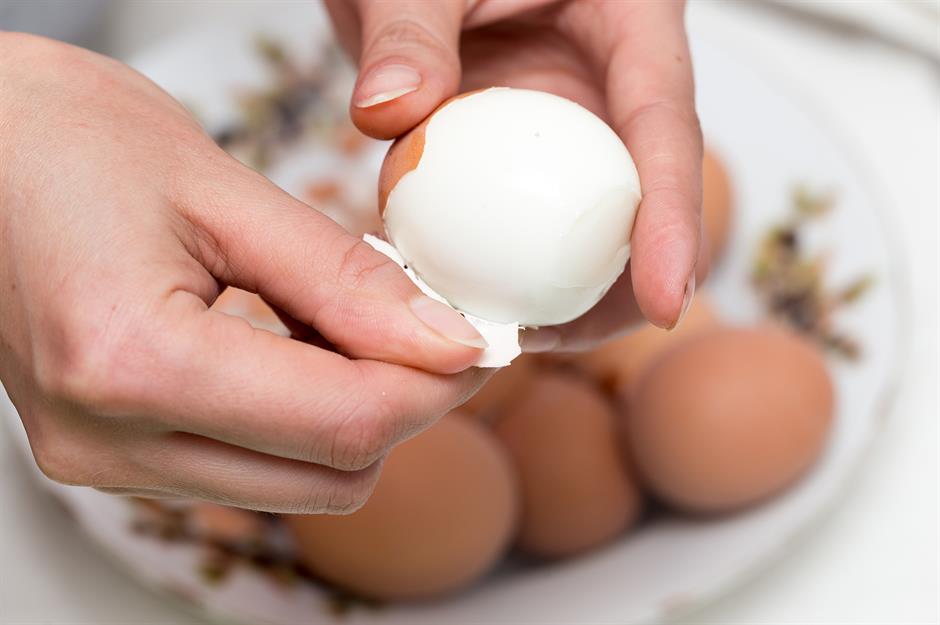
There's plenty of advice out there about how to make peeling hard-boiled eggs easier. One widely believed claim is that adding baking soda or white vinegar to the water you're cooking the eggs in will make the job much simpler. But when food website Allrecipes tested out these methods, it found that none of the techniques worked as well as popping the eggs in a small jar with some water and giving them a good shake. Save your baking soda or vinegar for something else.
16. Only use unsalted butter in baking
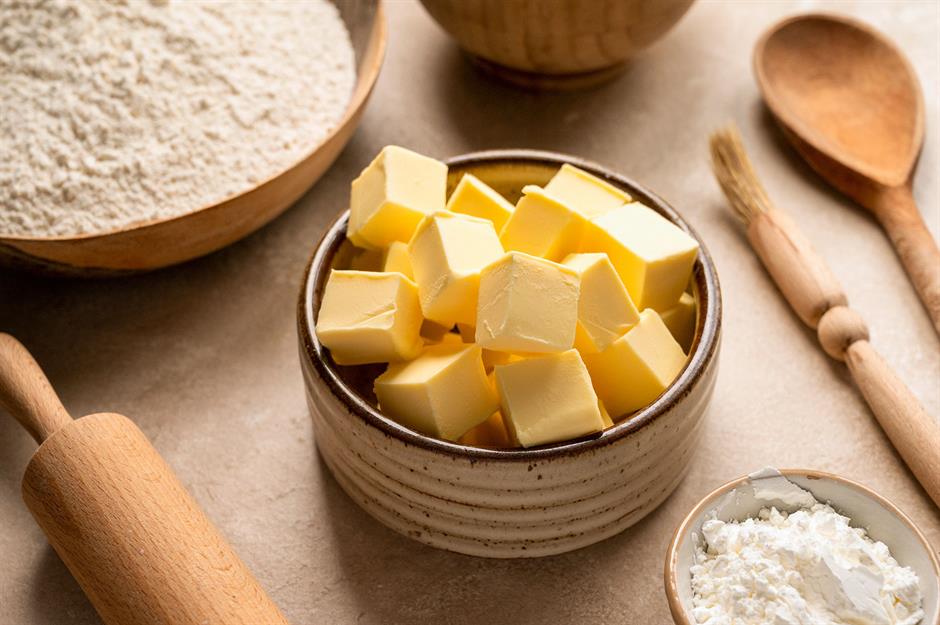
Chefs advise using unsalted butter in baking, so you have greater control of the balance of flavours. They argue that opting for salted butter would necessitate tweaking the amount of other ingredients to make the bake taste right. But let's face it, home cooking is different from professional cooking, and if using salted butter means you have one less thing to get from the shops, then we're all for it. It's not like your loved ones will notice the difference.
15. Make potato wedges with an apple corer
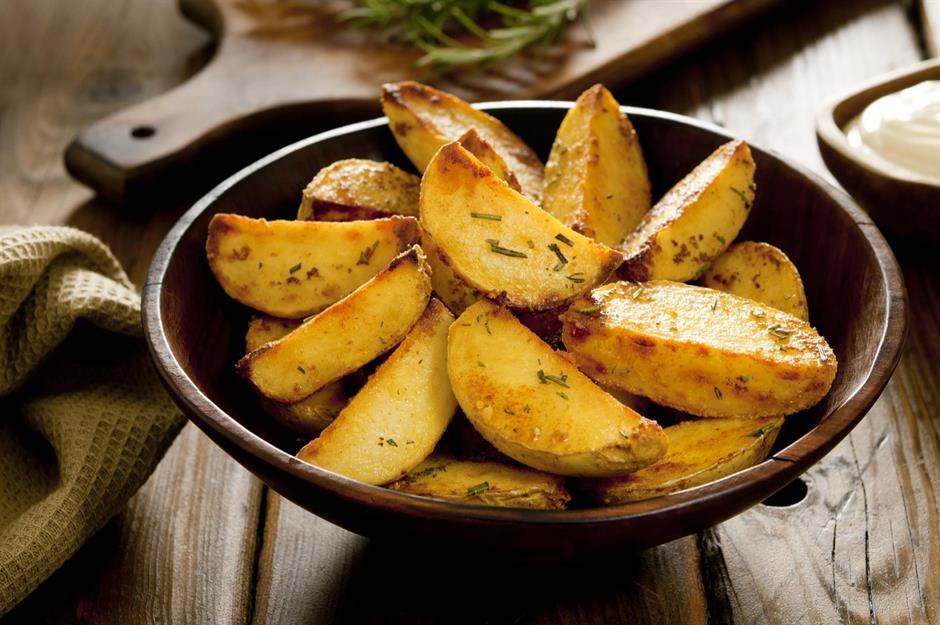
Cutting potato wedges with an apple corer seems like a great idea in theory – but not so much in practice. Firstly, the flesh of an apple is much softer than the flesh of a potato, so you'll need an incredibly sharp apple corer. Secondly, if the apple corer is sharp enough to go through a potato, it'll be sharp enough to slice through your fingers. So, maybe stick to using a kitchen knife.
14. Use a pair of tongs to squeeze a lemon
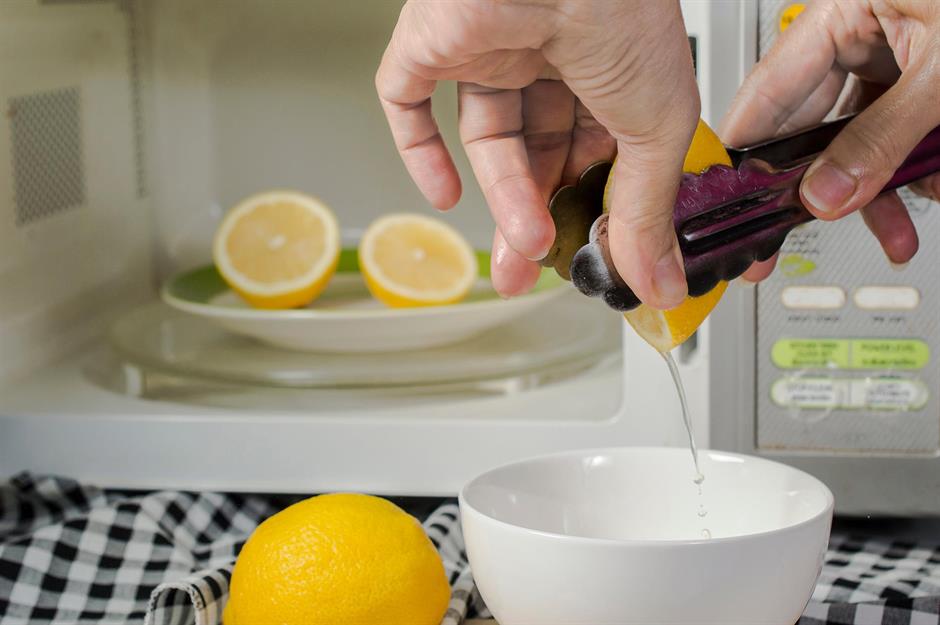
A hack is supposed to make your life easier and help you do things more efficiently, but using tongs to squeeze a lemon won't achieve either of these things. If using your hands to squeeze a lemon is the problem, a juicer is better and quicker. What may also be helpful is microwaving the citrus fruit on high for around 20 seconds – it'll soften the lemon and make it easier to squeeze.
13. Shake garlic in a jar to remove the skin
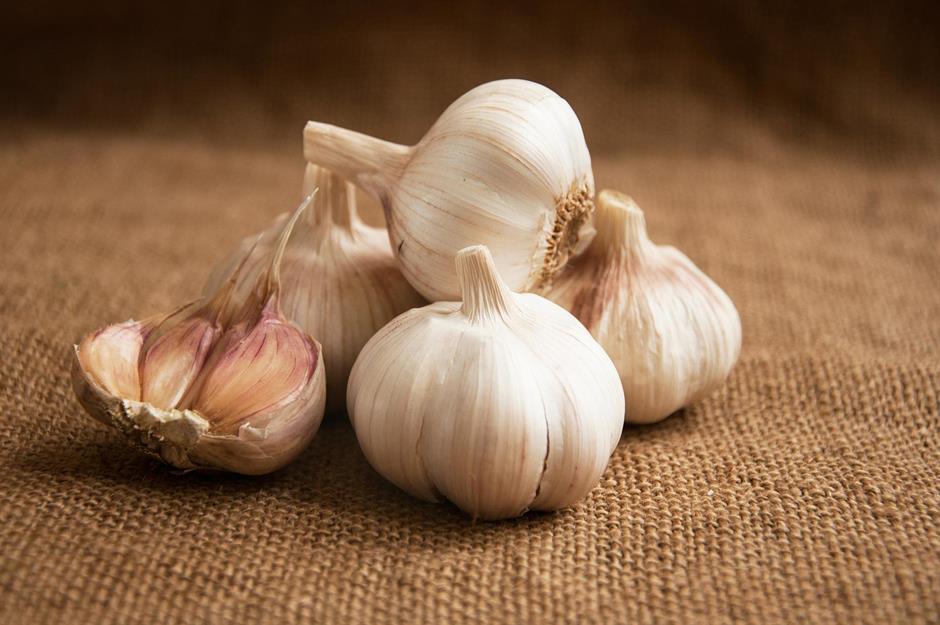
Food website Spruce Eats tried out every hack for peeling garlic and discovered that some of them do work. The main issue with the common shake-garlic-in-a-jar method is that it takes a lot of effort, it doesn't work every time, and it leaves your jar smelling of garlic. The best way to peel the cloves is to smash them with the back of a knife or to pop the whole garlic bulb in the microwave for 20 seconds before peeling.
12. Add a potato to soak up excess salt in a broth
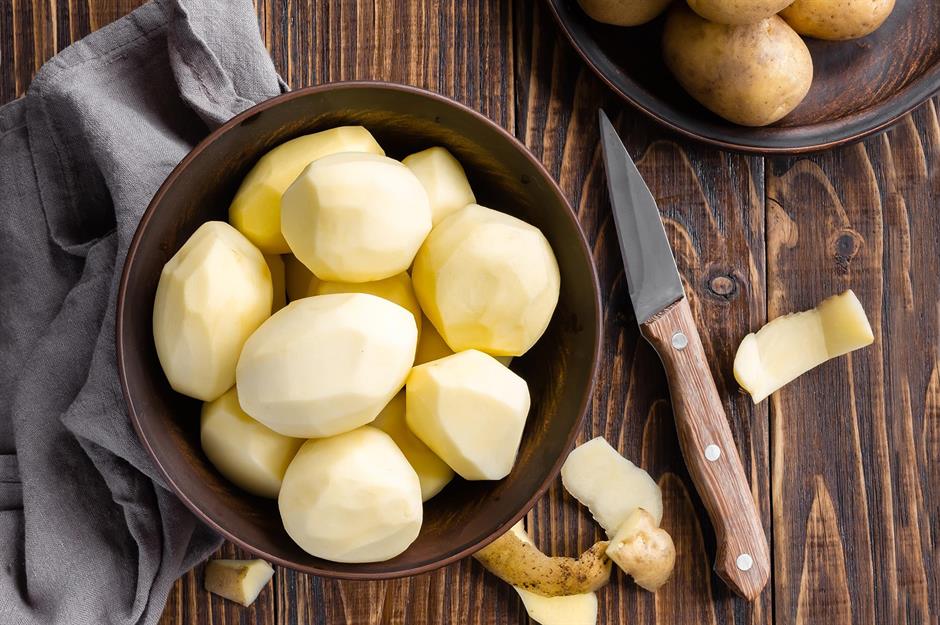
It's widely suggested that if you've over-seasoned your sauce or broth, adding a whole peeled potato will soak up all the excess salt and save you from culinary catastrophe. But it doesn't work in the way people think; potatoes do absorb water, so they could potentially absorb some salty water out of a broth – but there are easier ways to fix the problem. Next time, drain some of the broth away and then add more water. Save the potato for another day.
11. Soak onions before chopping to avoid crying

We’ve all shed a few tears while chopping onions, and there's not much you can do to stop it. A specific chemical irritant found in the juice of onions stimulates the eyes’ lachrymal glands – and no amount of rinsing will remedy that. Try using a really sharp knife to minimise the amount of juice squeezed out of the onion when it's cut. Or, if you're really committed, wear a pair of swimming goggles.
10. Use chopsticks to make perfect hasselback potatoes
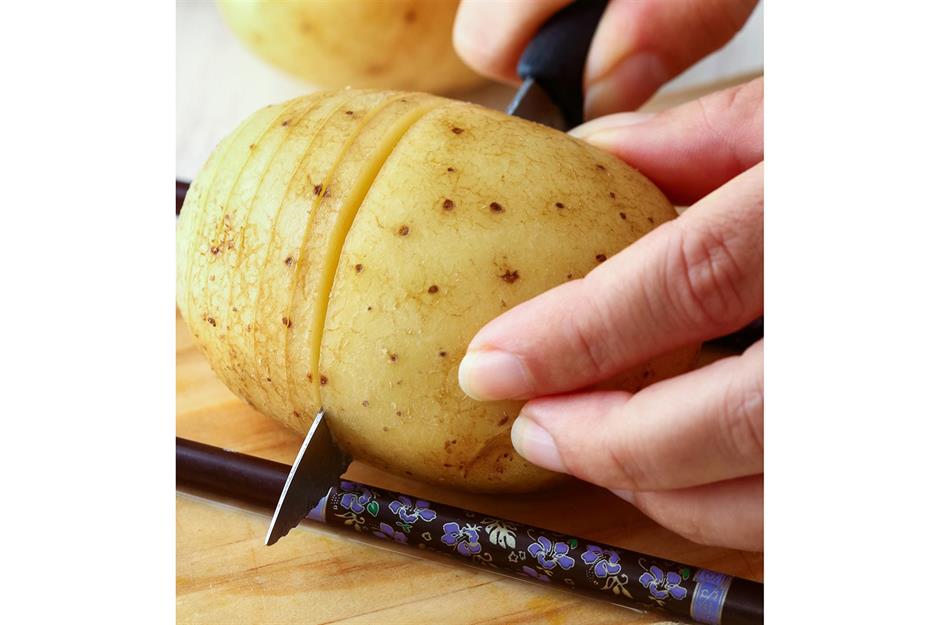
Using chopsticks to make hasselback potatoes is a great idea in theory. But a couple of things might make the hack more trouble than it's worth. First, unless the potato is evenly thick all the way through, some cuts will still slice straight through, and both ends will just get chopped off. Second, it's hard to keep the potato and the chopsticks from moving around, meaning your cuts won't be even. You’re perhaps better off cutting slowly and carefully with a sharp knife.
9. A wooden spoon stops your pot from boiling over
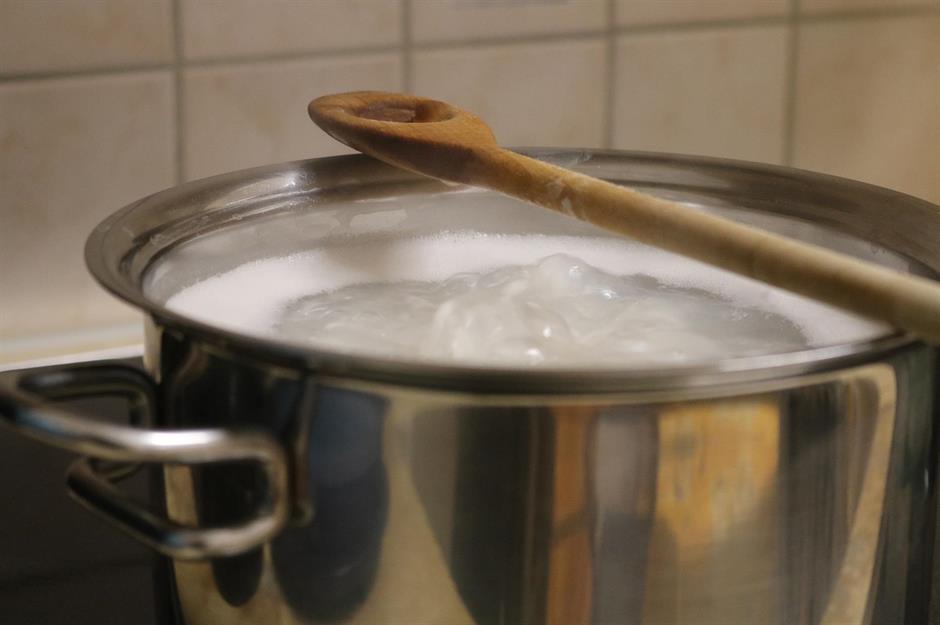
This is a popular hack because it kind of works – for a short time at least. The idea is that the bubbles in the boiling water burst when they touch the cooler wooden spoon. But, while wooden spoons are more heat resistant than metal ones, even they won't stay cool forever. So, this hack might stop whatever you’re boiling going over for a split second (which might be enough time for you to take the pot off the heat), but it won’t stop it for much longer.
8. Cover butter with a warm bowl or glass to soften it
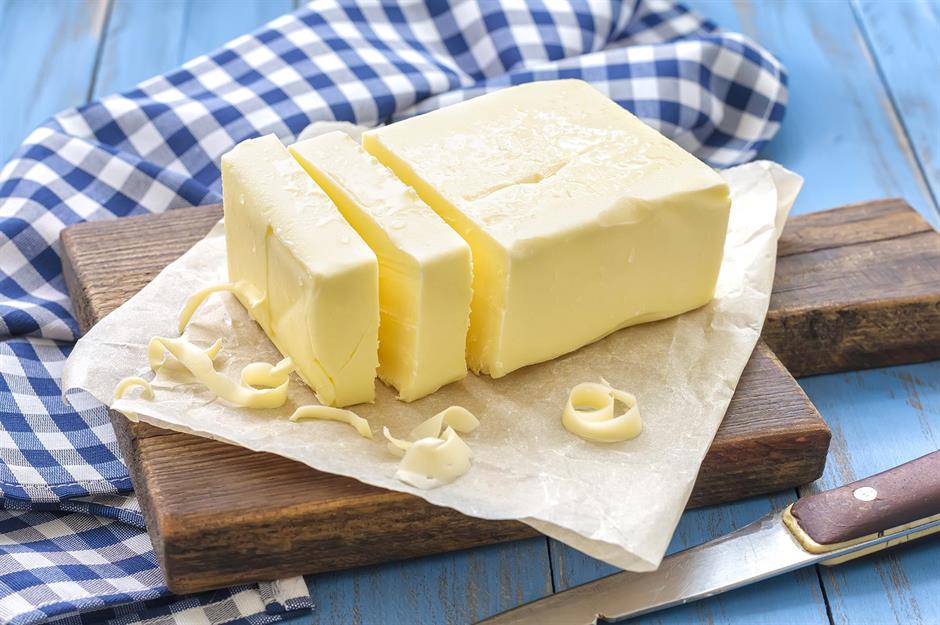
Got some cold butter you’ve forgotten to bring up to room temperature before baking? Some say that you should heat a mug, glass or small bowl in the microwave, then use it to cover the butter. Supposedly, the butter will soften after a few minutes. Instead, the inside of the butter block will still be fridge-cold, while the corners will have melted completely. You’ll get better results using a box grater to grate the butter.
7. Make an omelette in a sandwich press
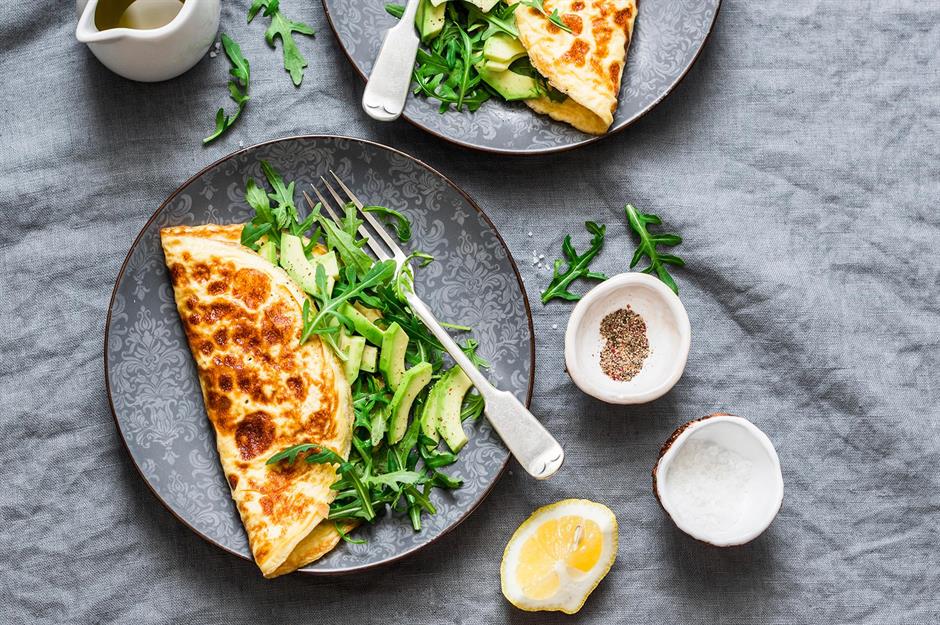
Internet cooks have convinced the world that you can make thin, crêpe-like omelettes in a sandwich or panini press. In theory, you can – if you're very careful and you make sure the press is super-hot when you pour eggs onto it. In reality, though, most people end up with a messy kitchen counter, a sandwich press in need of a serious deep clean and no omelette. Just stick to a frying pan.
6. Sauté garlic and onions together
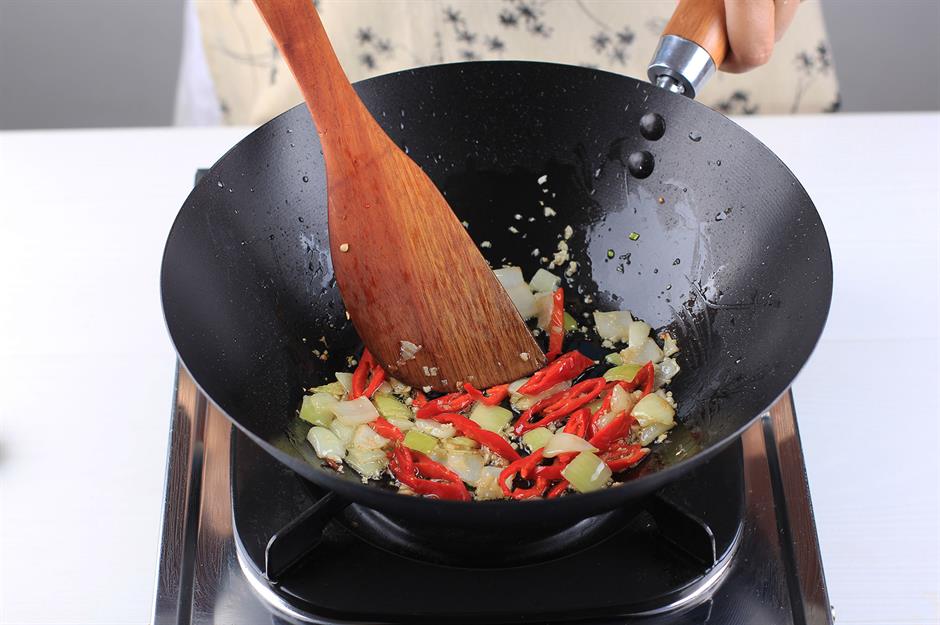
'Sauté the onions for three minutes, then add the garlic for another two...' We've read this – or something like it – in so many recipes that it's practically gospel at this point. But let's face it, no onions are cooked and translucent in just three minutes, and garlic is going to burn if it's cooked for any longer than 30 seconds. So put that advice in the bin and start using your instincts. Onions take as long as ten minutes to sauté, and garlic can be added much, much later.
5. Use mayo on a grilled cheese sandwich
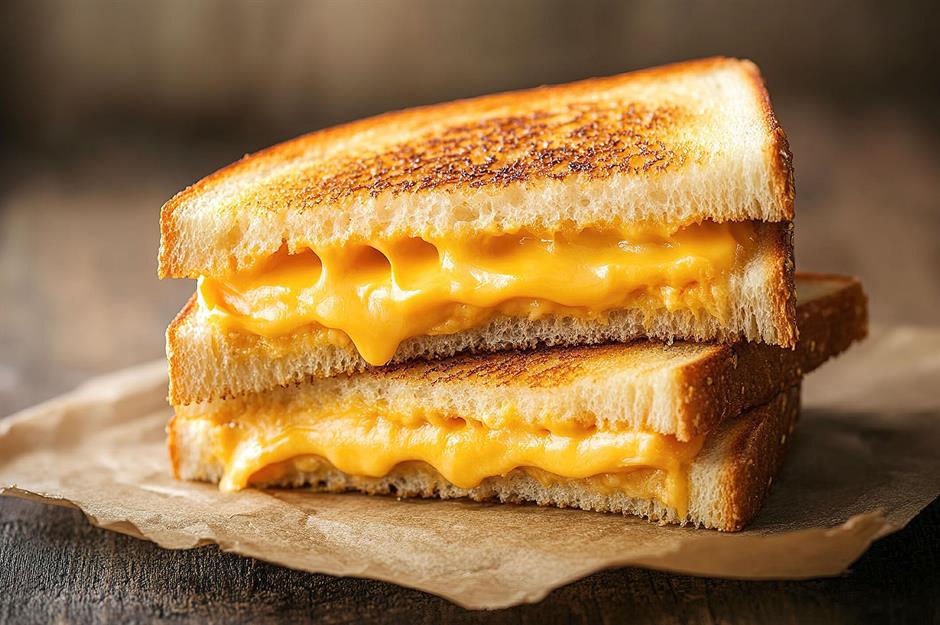
It's become trendy these days to use mayonnaise instead of butter on top of a grilled cheese sandwich. Supposedly, it makes for a better crunch and is much easier to prepare. But while all that might be true, many people argue that it's detrimental to the taste. And what's the point of a food hack that makes your favourite foods less delicious?
4. Rinse cooked pasta to stop it clumping together
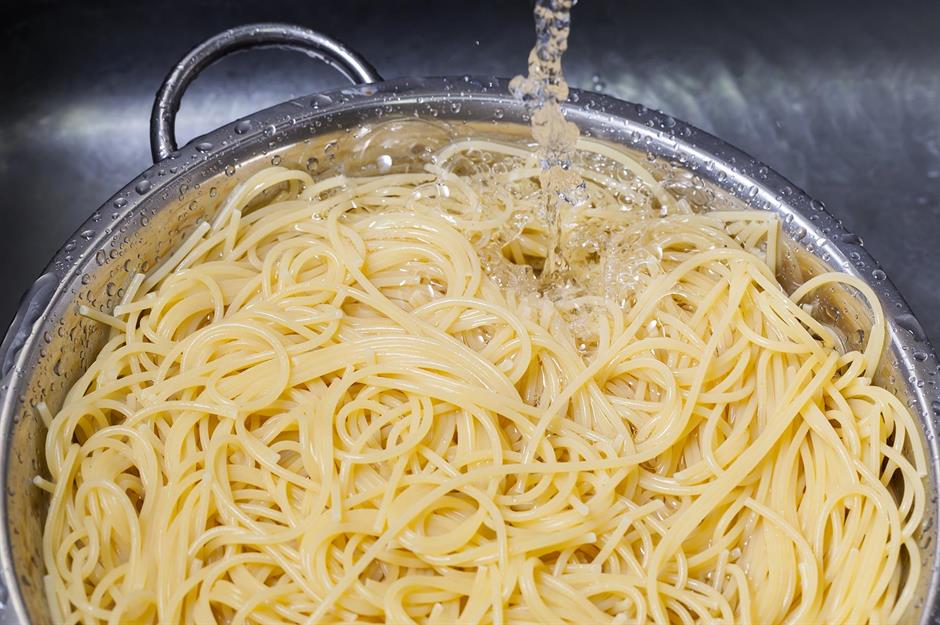
Some people swear by rinsing their pasta after cooking to make sure it doesn't stick together. But in reality, rinsing pasta washes off the starch that's needed to encourage your sauce to thicken and cling to the pasta once it's all tossed in the pan. If you need a hack to prevent pasta from clumping, cook it in a big enough pot, stir it regularly and only boil it until al dente.
3. Season your eggs during cooking
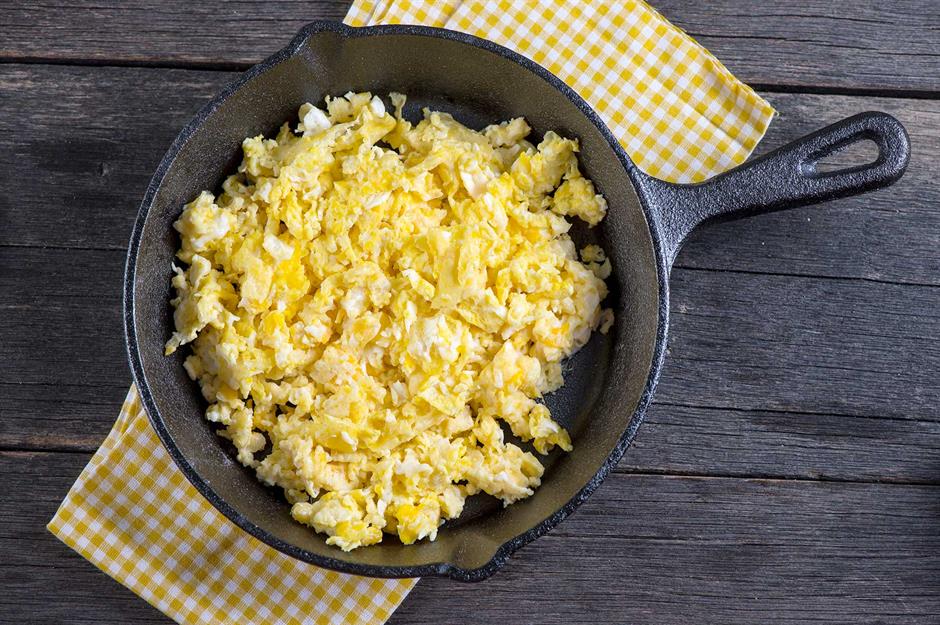
You could blame Gordon Ramsay for this one. In a 2011 YouTube video that's been watched more than seven million times, Ramsay cooks the most amazing-looking scrambled eggs – but he seasons them during the cooking process. These days, the consensus seems to be that seasoning eggs while they're still cooking results in strangely tough but slimy eggs. It's best to leave the salt until after they're cooked.
2. Wash chicken before cooking to remove bacteria
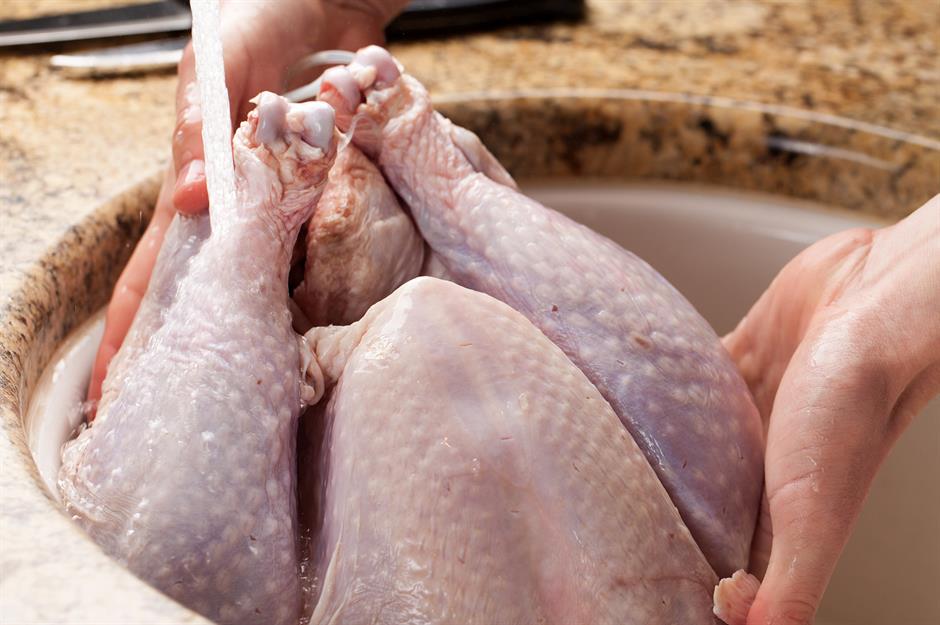
Julia Child was a fan of washing raw chicken before using it, and the practice has been adopted across the world. But washing chicken is dangerous, and nobody should be doing it at home. Water doesn't wash off any bacteria, so washing chicken in your kitchen sink only spreads the bacteria further and causes cross-contamination. The meat will be made safe for consumption when it cooks.
1. Add oil to boiling water to prevent pasta from sticking
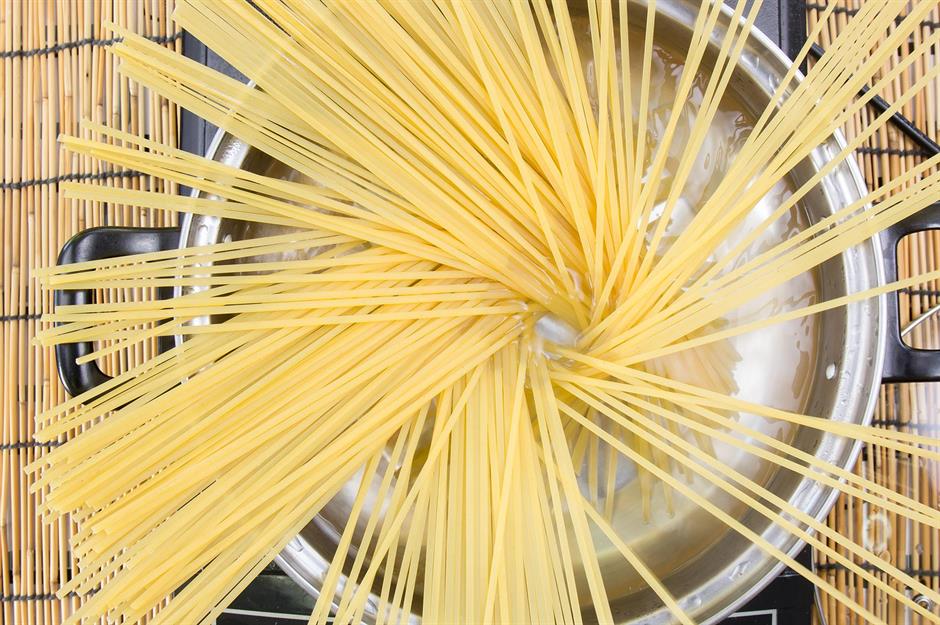
Long pasta shapes like tagliatelle and spaghetti will sometimes stick together due to their starchiness. Gordon Ramsay was a big proponent of adding oil to your cooking water to help remedy this. But oil never fully mixes with water, so it'll only work for the bits of pasta floating at the top. It also means that any sauce will slide right off the pasta when you mix it in. Use the olive oil to finish off your dish instead.
Now discover the common food mistakes that could poison you
Last updated by Luke Paton.
Comments
Do you want to comment on this article? You need to be signed in for this feature